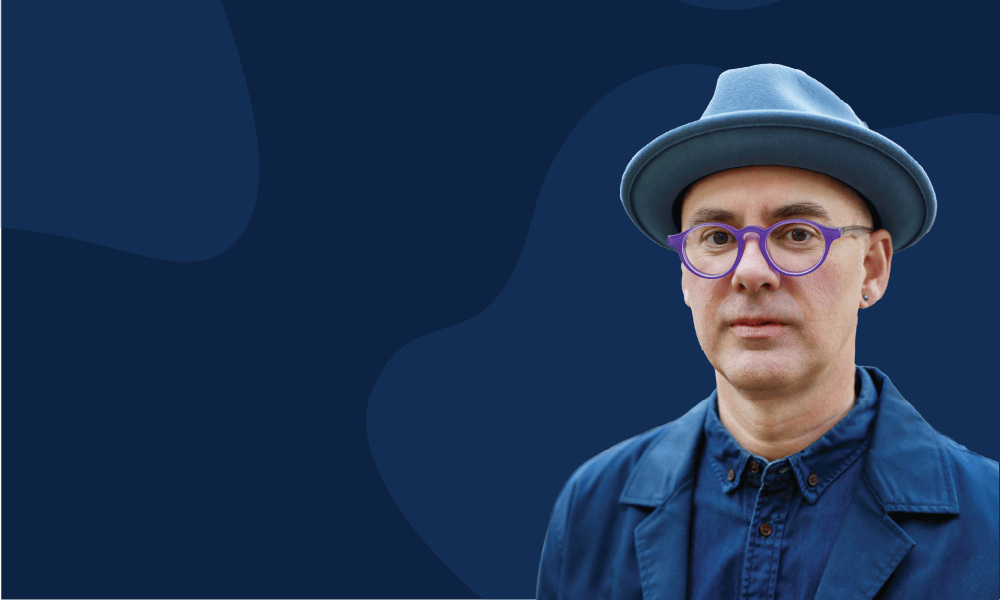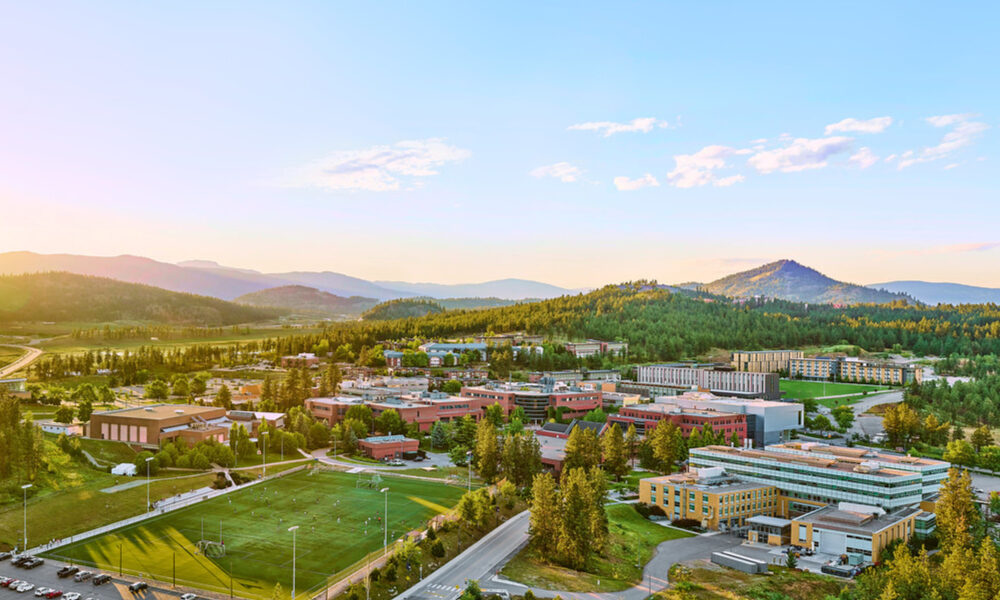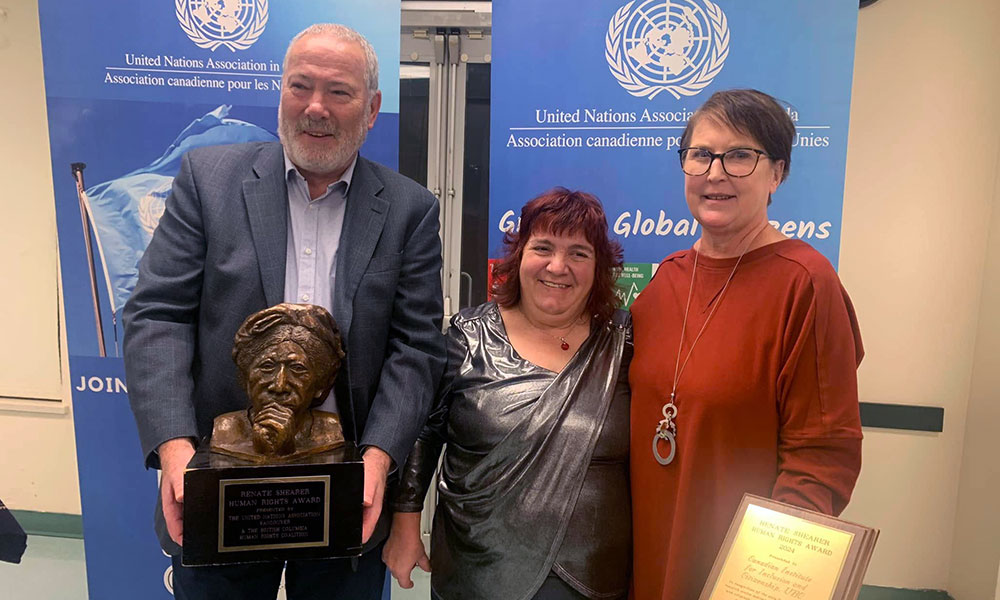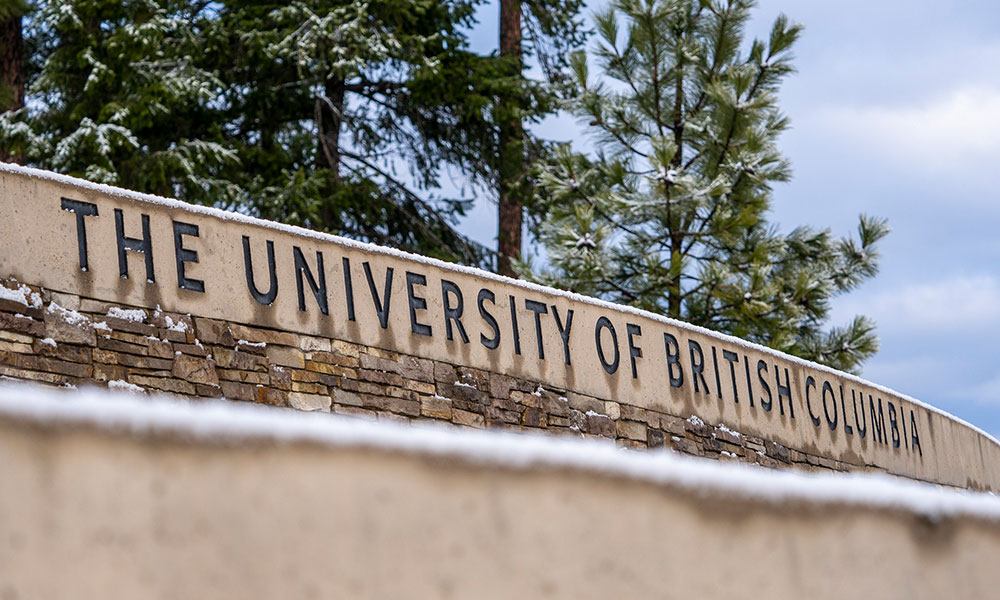
UBC Okanagan proudly recognizes Dr. Mohammad Arjmand, Dr. Brodie Sakakibara and Michael V. Smith as 2025 Researchers of the Year, celebrating their exceptional contributions to research, innovation and creative activity.
This year’s recipients carry on 20 years of scholarly and creative excellence
Three UBC Okanagan faculty members have been recognized for their outstanding research commitment and achievements through the university’s annual Researcher of the Year awards.
Dr. Mohammad Arjmand in the Natural Sciences and Engineering category, Dr. Brodie Sakakibara in Health and Michael V. Smith in Social Sciences and Humanities were announced today as the 2025 Researchers of the Year at a formal celebration of research excellence.
This year marks the 20th anniversary of the prestigious awards, which recognize faculty members making the world a better place through scholarly and creative pursuits. Award recipients epitomize excellence and are leaders in their respective fields and disciplines.
This year’s three recipients perfectly exemplify the vision and aspirations of UBC Okanagan research, says Dr. Suzie Currie, Vice-Principal and Associate Vice President, Research and Innovation.
“At UBCO our goal is to conduct fundamental and applied research and creative activity that addresses the most pressing issues of our time, and to pursue areas with tangible impact to our region, our country and our world,” she says. “Congratulations to each of our 2025 Researchers of the Year who continue to have significant impact and influence in our community, and in society.

2025 Researchers of the Year were announced Thursday, May 8, at a formal celebration of research excellence.
2025 Researchers of the Year
Dr. Mohammad Arjmand
An Assistant Professor in Engineering, Dr. Arjmand applies his expertise in two fields—polymer engineering and nanotechnology—to real-world problems. In Canada, only nine percent of plastic waste is actually recycled. Dr. Arjmand’s lab is working to take plastics—or polymers—from our daily life and melt, shape and reconstitute them for different purposes, helping save space in landfills while also protecting the environment.
His research also involves creating nanomaterials—extraordinarily small materials—with a variety of functions. His lab is putting these materials into processed polymers, where they not only help reinforce the plastics, but can also give them new properties, like the ability to conduct electricity.
“We’re doing great things. We’ll continue doing great things,” Dr. Arjmand says. “We have a nourishing and thriving environment at UBCO and I hope even more researchers are clamouring to come here, to do this work, to help society and the world.”
Dr. Brodie Sakakibara
Dr. Sakakibara is dedicated to empowering stroke survivors after discharge from hospital and giving them the support they need to help reduce further hospital visits.
An Associate Professor in UBC Okanagan’s Centre for Chronic Disease Prevention and Management, Southern Medical Program, Dr. Sakakibara advocates for viewing stroke as a chronic condition, not just a single acute event. With this mindset, his lab aims to help stroke survivors by providing them with resources and education to better manage this chronic condition and help them avoid and mitigate risk factors that contributed to their stroke. Through remote rehabilitation and self-management support programs, patients can access services inside their homes and work with highly trained health professionals for stroke recovery, prevention and management.
“Very few researchers and labs in the world are taking the approach of stroke as a chronic condition,” says Dr. Sakakibara. “It’s empowerment. It’s putting people back in control, letting them manage on their own and making them a key partner in their care for much better long-term outcomes.”
Michael V. Smith
A Professor of Creative Writing in the Faculty of Creative and Critical Studies, Smith experiments across genres to challenge cultural norms, embody difference and make space for voices often erased.
His creative research practice includes poetry, fiction and non-fiction books, as well as experimental short film and feature documentary filmmaking, collaborative photography projects, live YouTube performance events and stand-up improv comedy. Smith works from his own queer and genderqueer identities and uses a queer, gendered and class-conscious lens in his research practice to push back against dominant narratives and stereotypes.
“It’s not enough to just tell a story—you can hear a story and not care,” says Smith. “What I’m trying to do in art is create feeling, to make people care, to nurture empathy. I want audiences to feel what it’s like to live someone else’s experience and recognize their own humanity in it.”









